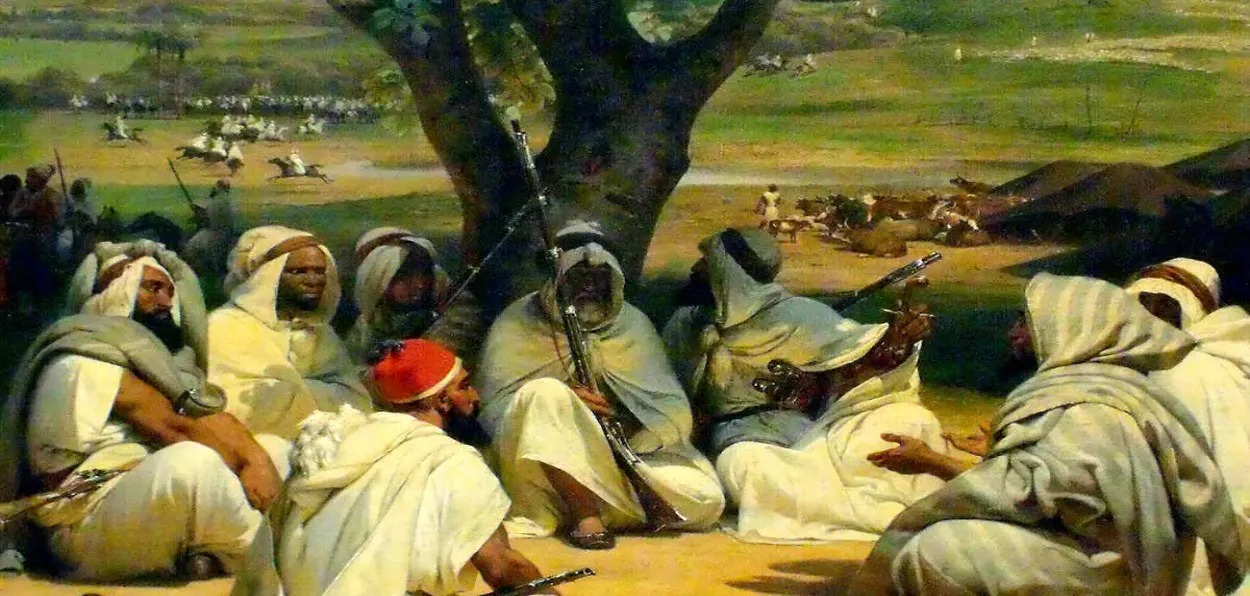
Amir Suhail Wani
Islam places profound emphasis on peace, harmony, and brotherhood, recognizing them as fundamental to human existence and societal evolution. Peace isn't merely the absence of conflict but signifies a state of socio-economic and political stability that fosters development, prosperity, and happiness for individuals and societies alike.
In this context, ideologies that disrupt peace are deemed harmful to humanity, impeding global prosperity. Islam, emerging amidst a backdrop of incessant warfare and social unrest in pre-Islamic Arabia, brought forth a transformative message of peace, love, and coexistence.
Pre-Islamic Arabia was marked by perpetual battles, blood feuds, and social injustices, where the weak were exploited by the powerful, and vulnerable groups lived in constant fear. Islam challenged this paradigm, advocating for the sanctity of all life and the dignity of every individual, regardless of their background.
The early years of Islam witnessed a remarkable transformation in the Arabian Peninsula, as the message of peace replaced the culture of violence and conflict. The core principle of Islam lies in treating each person with respect and dignity, reflecting its commitment to peace and harmony.
The significance of peace in Islam is evident in its very name, which means "peace." Islamic greetings, such as "May Peace and blessings of Allah be with you," underscore this peace-oriented ethos. Moreover, the Quran begins with verses invoking Allah's mercy and compassion, highlighting the importance of peace, coexistence, and kindness towards all beings.
While Islam faced defensive wars in its early stages, it prioritized the preservation of life and property, with clear directives from Prophet Muhammad to avoid harming non-combatants and minimizing destruction.
Prophet Muhammad's teachings exemplify Islam's emphasis on peace and reconciliation, even in the face of adversity. He instructed his followers to prioritize peace and safety, offering amnesty to enemies and striving to diffuse conflicts. The Treaty of Hudaibia stands as a testament to Islam's commitment to peace, transcending personal interests for the greater good. Quranic verses and sayings of the Prophet emphasize the virtues of humility, forbearance, and responding to ignorance with peace, underscoring the importance of peaceful coexistence.
However, deviations from these teachings have led to discord within Muslim communities. Islam's spiritual ideals revolve around peace, with the Quran portraying it as the essence of paradise and describing God as peace itself. Prophet Muhammad consistently advocated for spreading peace, teaching his companions the values of tolerance, mercy, and kindness.
His teachings emphasize the interconnectedness of faith and love, highlighting the transformative power of spreading peace and cautioning against the corrosive effects of hatred.
ALSO READ: Is mixed housing a solution to growing Hindu-Muslim chasm?
In essence, Islam's teachings on peace, harmony, and brotherhood provide a roadmap for navigating societal challenges and fostering a more inclusive and compassionate world. By embracing these principles, individuals can contribute to building a society where peace reigns supreme, ensuring the well-being and prosperity of all.
